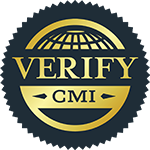Services
All inspections are performed with great care and attention to detail.
Residential Inspections
Starting at $425
A meticulous examination of your home's major systems, identifying potential issues before they become costly problems.
What's Included With Your Residential Inspection?
Thermal Imaging
Infrared cameras reveal moisture leaks, electrical problems, and energy inefficiencies invisible to the naked eye.
Drone Inspections
Drones provide the ability to examine all aspects of the roofing system, if it is inaccessible or unsafe to walk on the roof.
Add-On or Standalone Services
Sewer Scopes
A home’s sewer lateral line is beyond the scope of a standard home inspection. As such, a costly issue can go undetected until you have moved into the home. A sewer scope inspection of the lateral line can reveal common causes of backups, such as poor intallation, damaged materials and tree root intrusion. In most areas, the home owner is responsible for the repair or replacement of the lateral line until it ties into the city sewer.
Mold Testing
The detection and identification of potential mold is beyond the scope of a standard home inspection. Over time, mold can deteriorate the integrity of buillding materials, leading to costly repairs. Additionally, exposure to indoor mold can lead to long term health problems. Air and surface sampling can be performed, with the samples being sent to a laboratory for analysis.
Radon Testing
Radon is a radioactive, odorless, colorless, tasteless gas. It's produced by the natural decay of uranium, thorium, and radium in rocks and soil. Radon is a major cause of lung cancer. It's estimated that radon causes between 3% to 14% of all lung cancers in a country.
Well Water Quality
Well water can contain harmful bacteria, viruses, parasites, heavy metals (like lead, arsenic), and chemicals (like pesticides or fertilizers). Water quality can change over time due to seasonal factors, changes in land use, or natural events.
Frequently Asked Questions
Buying or selling a home can be a stressful experience, but I’m here to ensure you know what to expect during your home inspection.
A home inspection includes checking for any structural issues such as foundation cracks, roof leaks, plumbing issues, electrical wiring, heating/cooling systems, insulation, windows, doors, chimneys, etc. Depending on how big the property is, a home inspection typically takes 3 hours.
Ensure all inspection points are free from clutter, including any closets that might lead to a crawlspace or attic, and clearing some space around your home’s perimeter. It’s also important to check the functionality of all built-in appliances, electric, and gas. If you don’t plan to attend the inspection, make sure your inspector has access to the home, and all pets are properly contained or moved.
A home doesn’t pass or fail an inspection. Instead, a home inspection is a thorough audit of your home’s components. In most cases, there will be concerns marked on your home inspection report, but these are strictly informative.
While you can legally skip a home inspection in many cases, doing so could mean you may end up buying a home that has major issues that need to be fixed.
While a home inspector may recommend some minor repairs, they are not qualified to make major repairs. He or she can provide information about what needs to be repaired — and it might be helpful to know that information — but the decision to actually do the work lies solely with the homeowner. Not only does this give you the freedom to choose your contractors, but it also helps prevent a conflict of interest.

